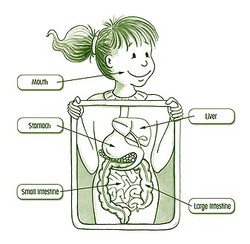 A while back I wrote an article titled Calories In, calories out* that described the balancing act of weight loss. However, there was one caveat: not all calories are created equal. In other words, calories from the different foods/drinks we eat (from fats, carbohydrates and proteins) do not affect our bodies in the same way. Many foods that contain natural sugars, added sugars, and starch (rice, potatoes, pasta, breads, baked goods) raise our blood sugar. These foods are considered to have a high-glycemic index. Proteins and fats on the other hand do not significantly affect our blood sugar and are considered to have a low-glycemic index. So why does this matter? Well, research from the Harvard School of Public Health indicate that the risks of diseases such as type 2 diabetes and coronary heart disease are strongly related to the glycemic index (GI) of the overall diet. Other studies show that low-GI diets improve our sensitivity to insulin, improve weight loss maintenance, and decrease our levels of LDL (aka “lousy”) cholesterol. The moral of the story: eating lower glycemic-index foods reduce your risk for heart disease and diabetes and also assist in weight maintenance. I am not touting for the Atkins diet here. I believe that low-GI diets are easier to stick to on a day-to-day basis compared to low-carb diets. Look forward to a later post on helpful recipes and ideas on how to eat the low-GI way in addition to ways to combine foods to lower their impact on our blood sugar. 'Till then here's a link with a list of the GI indexes of 100+ foods. What are your thoughts on the glycemic index?
0 Comments
 Last year I read an article in the New York Times on the benefits of reading fiction. Since then, I've jumped into the world of fiction head first, making up for all the years I've immersed myself in non-fiction. My chronic desire to be “productive” has drawn me to non-fiction in general, thinking that my time is best spent learning about health or psychology or biology….but really the benefits of fiction are vast. Especially for those (like myself) who struggle with expressing and reading their emotions and of those around them. The study highlighted in the article found that after reading literary fiction, as opposed nonfiction, people performed better on tests measuring empathy, social perception and emotional intelligence. It makes sense since our brains don't make much of a distinction between reading about an experience and encountering it in real life (which is why self-talk is so powerful!). Researchers say the reason is that fiction often leaves more to the imagination, encouraging readers to make inferences about characters and be sensitive to emotional nuance and complexity. Scientists call this capacity of the brain to construct a map of other people’s emotions and intentions “theory of mind.” And this capacity starts at a young age! A 2010 study found a similar result in preschool-age children: the more stories they had read to them, the keener their theory of mind — an effect that was also produced by watching movies but, curiously, not by watching television. Take note parents: preschoolers who have a TV in their bedroom and are exposed to more background TV have a weaker understanding of other people's beliefs and desires, and reduced cognitive development. Since reading that article I’ve read more than a dozen of awesome novels. Check out the website Goodreads.com if you’re interested in some good recommendations. Currently I am reading A Confederacy of Dunces, one of the most hilarious and outlandish books I’ve ever read. It’s a blast uncontrollably laughing aloud on public transit and sharing with my fellow riders who express curiosity. What are your favorite works of fiction? I would love to know your thoughts and get your recommendations. |
AuthorHello and welcome! My name is Andrea Notch Mayzeles. I am a Certified Health Education Specialist, Mom, and Master of Public Health dedicated to the path of well-being. As a wellness professional I am committed to continued learning and am here to share research, recipes and musings on health, psychology, personal development, and parenting. I hope you enjoy! Categories
All
|

 RSS Feed
RSS Feed